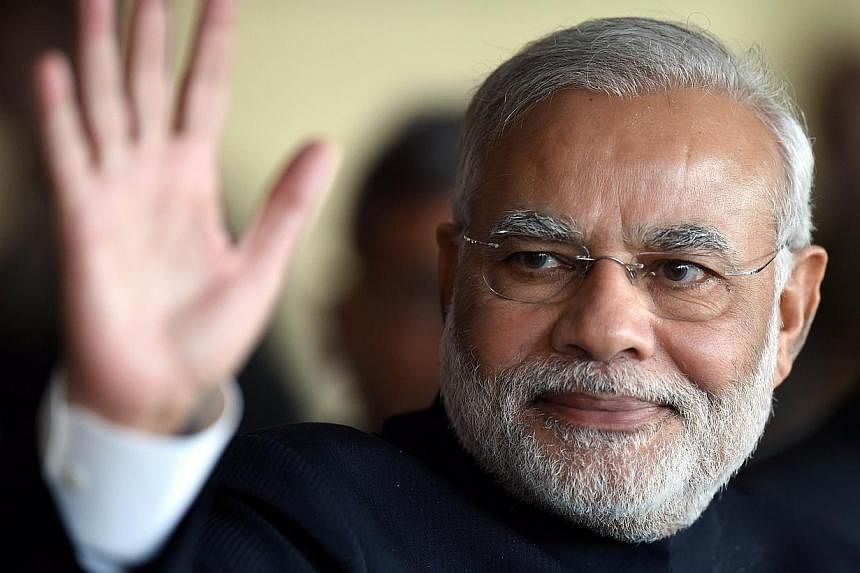NEW DELHI (AFP) - India's new Prime Minister Narendra Modi will on Friday deliver an Independence Day speech that is being closely watched for announcements of major reforms, amid growing scepticism about his chances of quickly transforming the struggling economy.
Modi won the biggest mandate in 30 years at national elections in May on promises of creating much-needed jobs, attracting investment, cutting red-tape and cleaning up corrupt government.
But he has yet to deliver on the promised reforms, dampening expectations that his right-wing government can overhaul an economy suffering through the worst slowdown in two decades.
The charismatic new leader will deliver his speech from the imposing ramparts of the old city's Red Fort, where, in a break with tradition, more than 10,000 members of the public will be present.
The occasion is usually reserved for VIPs.
In the days running up to the heavily publicised event, India's national press have trailed possible new policy announcements, including an ambitious plan to enable every household to have a bank account in coming years.
The initiative will allow the government to deliver more of its multi-billion dollar welfare schemes in cash rather than subsidies, the papers said.
Only 35 per cent of Indians have bank accounts, according to the World Bank, and lack of access to formal financial institutions often forces villagers to build up savings in cash, or borrow money from unscrupulous moneylenders.
Direct cash transfers, an initiative started under the previous Congress government, will improve efficiency and reduce the risk of massive graft, many economists believe.
The speech comes in the same week that the government suffered a major setback blow when the opposition blocked its first big attempt at legislative reform in parliament The landmark bill aimed to liberalise the insurance industry by lifting the foreign investment limit in the industry.
It was sent to a committee on Thursday, raising fears of a quagmire in parliament - and echoes of the previous government's failure to push through legislation.
Analyst Pratap Bhanu Mehta said the government had so far "put in an ordinary performance" and Modi needed to "come out swinging" soon or risk losing credibility.
"It was unrealistic to expect big bang reforms or sharp ideological shifts," said Mehta, president of Delhi-based think tank the Centre for Policy Research.
"Quite the contrary, what is needed is a little clarity, honesty, common sense and sense of purpose," he wrote recently in the Indian Express newspaper.
"The government is, at this moment, failing to project these qualities."
Markets were showing initial signs of scepticism about the government's planned action on a "wish-list" of reforms, UBS said in a research note this week.
But it was unrealistic to expect the government "to address all problems in the short term", it said.
Ahead of the speech and Independence Day celebrations, security has been stepped up, with police and soldiers out in force across the capital.

